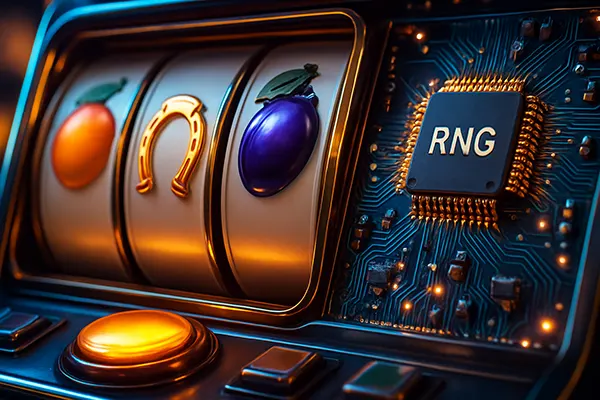
How RNG Algorithms Work: The Truth Behind Randomness in Slot Machines
The operation of modern slot machines relies on mathematical mechanisms designed to ensure unpredictable outcomes. RNG algorithms are a central element of this process, forming the basis of fairness and transparency. In recent years, independent testing organisations and regulators have strengthened requirements for random number generation systems, making these mechanisms more sophisticated and secure.
The Core Principles Behind RNG Technology
Random Number Generators serve as the foundation that determines every symbol appearing on the reels. These systems do not depend on previous results, creating an independent sequence of outcomes. The structure of the algorithm ensures that each spin is calculated instantly and without influence from external factors. For 2025, certified RNG modules used in licensed gambling software must comply with strict technical standards.
The mechanism continuously produces long sequences of numbers, even when the slot is not in active use. Once a player presses the spin button, the algorithm selects a number from the stream and interprets it into a combination of symbols. This process takes place within milliseconds and cannot be interrupted or predicted. Developers use cryptographically strong approaches to minimise the chance of manipulation.
Independent laboratories play a key role in verifying fairness. They analyse algorithmic stability, confirm the uniform distribution of outcomes, and evaluate compliance with international testing protocols. These reviews guarantee that the random number stream behaves statistically correctly across large sample sizes.
How Licensed Developers Implement RNG Standards
Reputable providers follow globally recognised technical frameworks, such as ISO, IEC, and regional regulatory guidelines. The development teams must submit detailed documentation describing the mathematical structure of the RNG algorithm and provide access to compiled binaries for independent review. This process ensures transparency and reinforces trust in the core mechanics of the slot.
Regular audits are performed annually or whenever a significant update is introduced. Testing institutions assess parameters such as entropy levels, repeatability resistance, and statistical randomness. These assessments confirm that the algorithm continues to operate correctly after patches, performance adjustments, or the introduction of new game features.
Developers also implement internal monitoring mechanisms. These systems detect anomalies in the random number stream and report deviations, allowing technical specialists to identify potential software errors. Such measures help safeguard players and maintain compliance with international standards.
RNG Security and Protection Against Manipulation
The security of random number generation algorithms is crucial. Developers integrate protective layers to prevent interference from unauthorised software or hardware. These layers include encrypted communication channels, signature verification, and integrity checks that run in real time. In 2025, most certified developers adopt advanced cryptographic solutions similar to those used in financial security infrastructures.
One of the primary risks addressed by engineers is the potential exploitation of patterns within the random stream. To mitigate this, algorithms employ complex mathematical transformations that remove correlations between generated numbers. The result is a sequence that resists prediction, even with sophisticated analytical tools.
Regulators require periodic validation of the software environment. This includes verifying server-side components, ensuring that updates cannot alter the RNG behaviour, and confirming that storage systems do not retain outcome data. Such measures prevent tampering and reinforce the randomness principles embedded in the slot machine architecture.
How Testing Bodies Verify RNG Security
Accredited laboratories utilise statistical methods such as chi-square, spectral analysis, and the Dieharder suite. These tools test the consistency of the random number stream under different conditions. If even minor irregularities appear, the algorithm must be adjusted before receiving certification.
Security verification includes source code examination. Specialists compare the documented algorithm with the compiled code, ensuring that no hidden logic modifies the random number sequence. This stage is particularly important when providers release new game versions or introduce progressive mechanics.
Monitoring systems implemented by regulators track game performance across large networks. If unusual deviations occur, the system highlights anomalies for further investigation. Such monitoring helps maintain fairness and ensures that players receive outcomes consistent with certified randomness principles.

Why RNG Matters for Fair Gameplay
Consistent randomness forms the basis of trust between players and developers. Without a stable RNG system, the entire gambling environment would lose credibility. Regulators require transparent reporting, evidence of statistical fairness, and ongoing compliance checks to ensure that outcomes remain unbiased. These elements collectively preserve integrity across the industry.
Return-to-Player percentages also rely on RNG mechanisms. Although RTP values describe long-term expectations, the randomness of individual outcomes ensures unpredictability in the short term. This balance between statistical structure and randomness maintains realistic performance and prevents fixed patterns from forming.
By integrating strong RNG frameworks, developers provide a secure and fair environment in which each spin remains independent. This independence protects against manipulation, ensures regulatory compliance, and supports transparent game mechanics accepted across global markets.
Long-Term Reliability and Industry Requirements
The reliability of an RNG algorithm is measured not only by its mathematical behaviour but also by how it performs over extended operational periods. Providers conduct continuous testing, applying stress scenarios to identify potential weaknesses in the algorithm or supporting infrastructure.
Industry standards in 2025 require that every slot title undergo an individual certification process. Even if two games use the same RNG engine, each must be tested separately due to different symbol distributions, reel structures, and gameplay features. This approach ensures that fairness applies to the entire game experience.
As technology evolves, developers are exploring improved entropy sources inspired by hardware-based systems. These developments aim to enhance randomness quality, reduce reliance on deterministic processes, and raise security standards. Such progress demonstrates how important RNG mechanisms remain within modern slot design.



